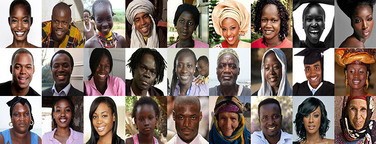Slavery Reparations Go Beyond African Americans
West African Descent:
Today, Africans in the diaspora still suffer due to the ill-treatment and slavery they suffered for many years. In 1860, about $3 billion was estimated as the worth of the descendants of African slaves used as free labor and $250 million estimated as the worth of cotton produced by them. All of these would have benefited the people of Africa.
All that suffered due to the injustice done to them have had reparations paid to them except Africans in the diaspora.
Brief History of Slave Trade:
Slave trade existed long before the transatlantic slave trade originated in the 15th century when the Portuguese and other European nations expanded their reach to Africa. Initially, Africans were kidnapped then taken to Europe for slavery; however, the increase in the demand for African labor lead to Africans being sold as slaves to American continents. The majority of the captives were from western African countries like Senegal, Nigeria, and Benin.
In total, about 25 million Africans were sold into captivity. Africa being the only continent affected this way, experienced a significant population decline, leading to the economic challenges still evident today; meanwhile, Europe and other nations were enriched. A Virginia law created in 1662 decreed that “the status of the child followed the status of the mother,” condemning unborn children to a life of slavery.
Reparation for Black People:
Reparation is a system created to pay back the descendants of African slaves for the great injustice done against them. The Durban Conference against Racism held in 2001 advocated that the Western world owed reparation to Africa, and the reparation is for the slave trade, colonialism, and the post-colonial era.
This is because the slave trade, which deprived Africa of adequate human resources and colonization, which caused an uneven tapping of natural resources, led to the unstable economy, political and cultural damage of Africa.
Others subjected to injustice and slavery have received apologies and have been compensated. For example, West Germany agreed to pay 3.45 billion Deutsche Marks to Holocaust survivors in 1952, and Native Americans got lands and dollars in billions for being forcibly exiled from their lands. Africans are the only ones still not paid despite the many opportunities for them to be though they were affected the most.
How Far Slavery Reparations Has Gone:
A bill called H.R. 40 was introduced about 30 years ago by Late John Conyers. Following the 1988 Civil Liberties Act, it was passed, which led to the reparations for Japanese Americans affected by the war. However, this bill did not gain ground till 2019.
The voting carried out by the congressional committee on the 14th of April, 2021, moved the bill forward; therefore, Africans in the diaspora closer to being compensated.
Reparations Black People Deserve:
Great monetary value was placed on Africans and their labor during their slavery; so, it necessary for Africans in the diaspora to be compensated for growing and closing the racial wealth and economic gap. This reparation should be in the form of;
Payment for lost wages and damages:
- Free tuition or cutback on tuition
- Grants for businesses and housing
- Free properties for those who have proof of African slave origin
The reparations should be received by black people who can trace their origin to the people enslaved and those who can prove they were excluded from various policies.
Final Thoughts:
Reparations for descendants of African slaves are long overdue. It is necessary to atone for the suffering the blacks endured centuries ago and are still enduring due to various policies that have made them inferior to others. Their labor helped enrich those that enslaved them, and up until now, they have not been compensated calls for intervention.
Justice needs to be served to Africans in the diaspora, now, not later!! Take the west Africa interactive tour for more info.


